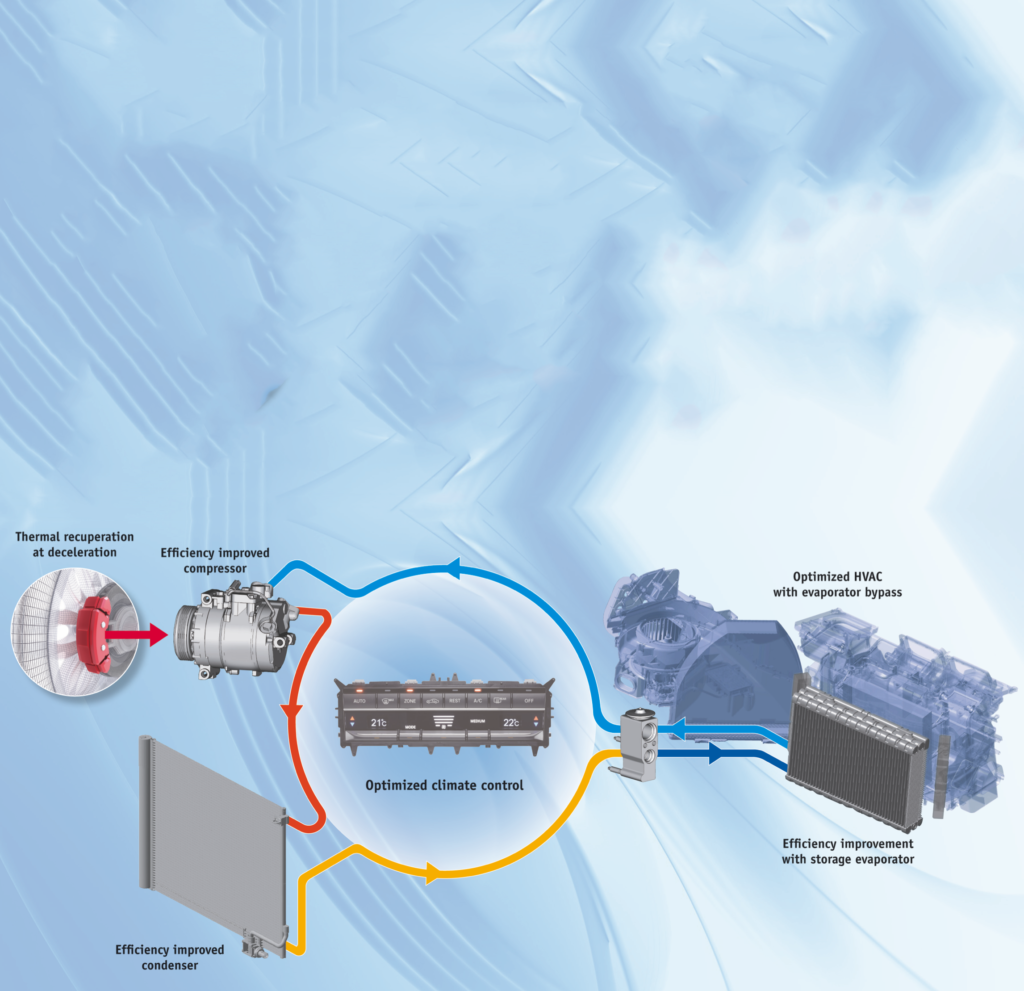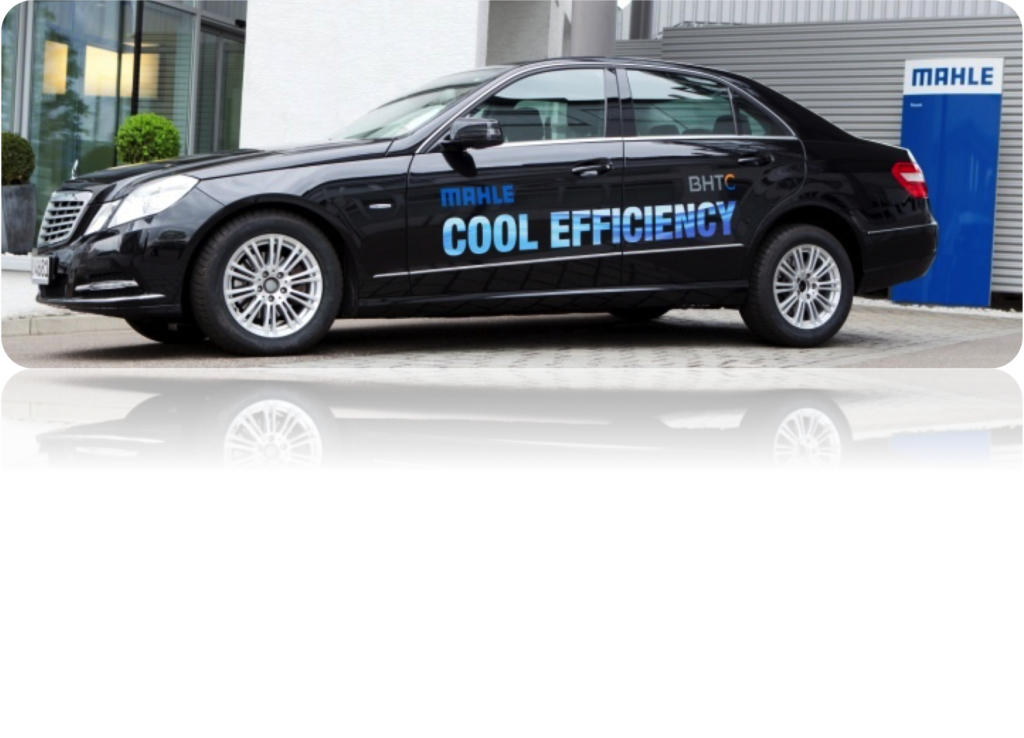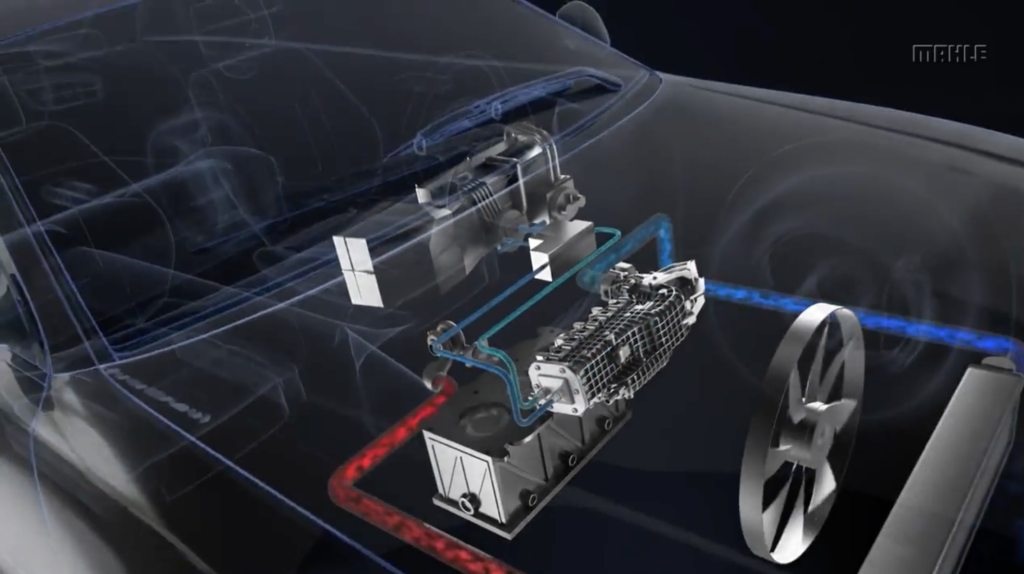COOL RUNNINGS
- PostedPublished 10 December 2016

AUTOMOTIVE component supplier Mahle showcased a suite of technologies at the European Automotive Air-Conditioning Convention (EAAC) in Frankfurt in September, claimed to reduce the fuel consumption of a car’s air-conditioning system by 50 per cent on average, over the course of a year.
Developed in conjunction with Behr Hella Thermocontrol (BHTC), the Cool Efficiency innovations were fitted to an otherwise standard Mercedes-Benz C-Class sedan that was on show at EAAC.
Cool Efficiency draws on the same principles as regenerative braking and idle-stop technologies now common on many new cars, in which a smart alternator kicks in under deceleration to burst-charge the battery or a super-capacitor so that drag can be reduced during normal driving, and the engine can automatically turns off when it would normally be idling as the vehicle is stationary.
At the moment, if the air-conditioning is being used on a car with idle-stop, the engine will restart to drive the compressor if cabin temperature rises too much, or if outside ambients are too high, simply keep the engine running at all times.
Cool Efficiency enables the AC to keep running for up to 90 seconds with the engine off by boosting compressor operation under deceleration and using an special evaporator containing “latent material” that can release cool temperature slowly, like the freezer blocks used in an Esky.
Dominik Hainke from Mahle’s thermodynamics and systems pre-development department told SightGlass News a standard compressor and evaporator setup could be also be used to provide a shorter-lived version of the same effect, with a simple software recalibration enabling the compressor to fill the evaporator with liquid under vehicle deceleration.

In addition to the special evaporator, Mahle’s Cool Efficiency C-Class featured a more efficient triple-subcooling condenser, enabling the use of a smaller compressor.
Airflow management was also improved, with only driver-facing vents activated when the car was being driven without passengers. Additional blend doors were also added to reduce the amount of airflow over the evaporator when the heater core was also being used to manage cabin temperature.
Mr Hainke said Cool Efficiency technology was close to being adopted on a production car, but was not at liberty to reveal which brand or model.
Not fitted to the Cool Efficiency demonstrator but similarly headed for production was Mahle’s Integrated Charge Air Subcooler (ICAS) for turbocharged engines (pictured below).
ICAS uses the AC system to improve charge cooling over conventional air-air or water-air systems, the effectiveness of which are limited by ambient conditions.
During his EAAC presentation, Mahle’s Markus Boger showed an animation of compressed turbo air going through a standard intercooler and into the engine’s intake with a 15-degree temperature drop from 50 to 35 degrees.
When the air goes through the Mahle ICAS chiller, a bypass flap guides it to be cooled to below ambient temperatures, as low as 10 degrees.

Mr Boger said the system aids fuel-efficiency and improves throttle response.
Mahle claims the reduced low-speed turbo lag enables ICAS-equipped cars to shave up to a second from the 0-100km/h acceleration time.
Although ICAS is one of those seemingly obvious solutions, it integrates and affects so many under-bonnet systems that its development proved a significant challenge for Mahle engineers, who had to work across various disciplines including engine development, air guidance and thermal management.
For each vehicle it is applied to, ICAS must also be carefully calibrated with various electronic control systems, such as those managing drivetrain and climate control.
Mahle is also well advanced in developing thermal management systems for electrified vehicles, but the internal combustion engine has some way to go. Clearly, forced induction will play a big part as governments demand efficiency while consumers demand performance, so thermal management will become more important than ever.
- CategoriesIn SightGlass
- TagsSightGlass News Issue 8

